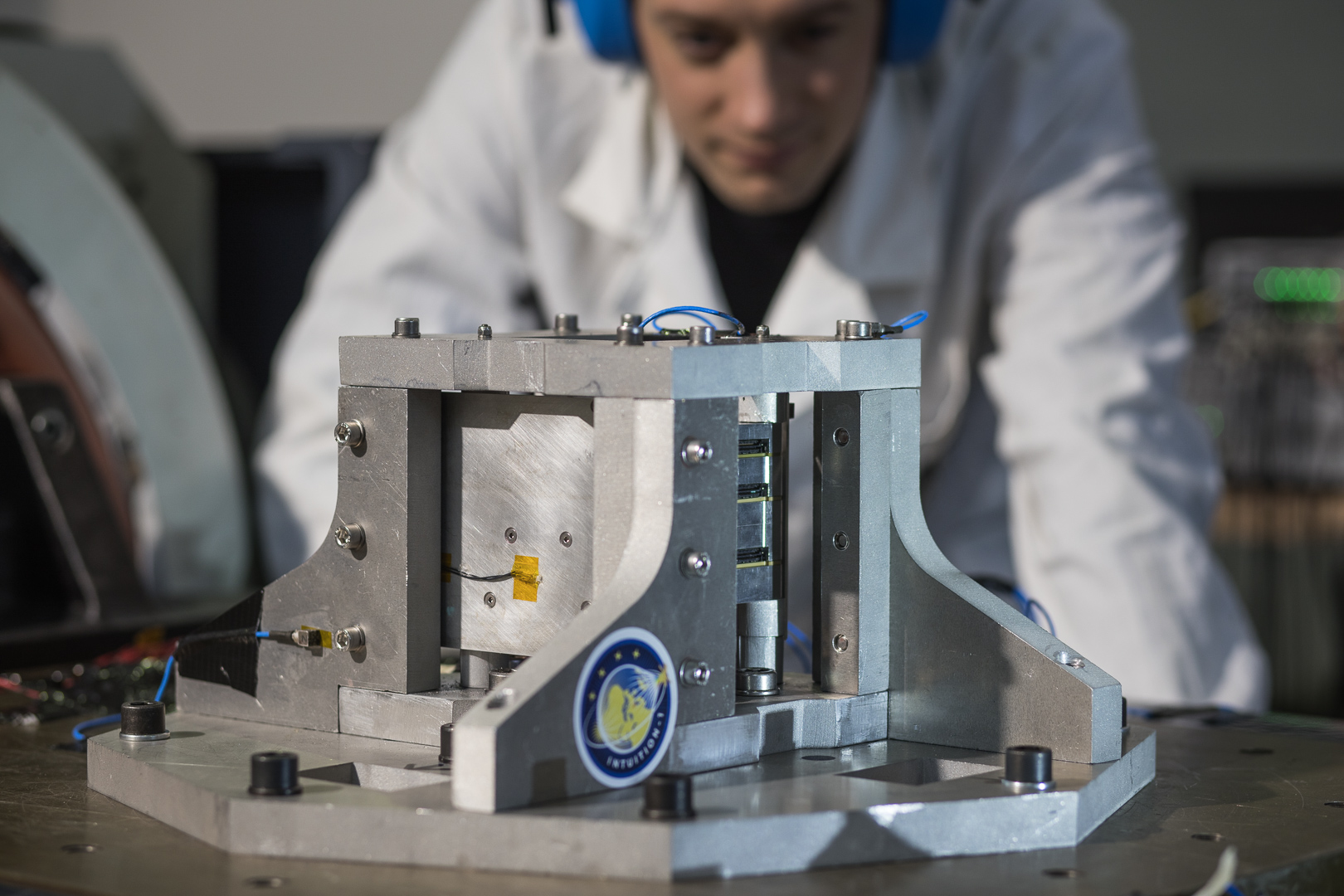KP Labs top 10 in 2021

At the beginning of 2022, we are more than happy to continue the tradition of sharing with you the highlights of the previous year. See what we managed to achieve together in 2021. It was another amazing and exciting year!
Let’s kick off our top 10:
1. For a strong start, we want to share the news about our Intuition-1 mission. We have to say that we are very proud to have reached another milestone on the way to technical acceptance of the subsystems of our Intuition-1 space mission. Last year we conducted a qualification campaign for two of our devices at the end of December: the Leopard Data Processing Unit and the hyperspectral optical instrument. The tests were aimed at checking the resistance of the systems to vibrations generated during a rocket launch that will carry the equipment into orbit. The trials confirmed that our design assumptions were correct. We are also delighted that the test results prove the high technical competence of our specialists responsible for the products.

2. The works on our new headquarters are coming to a close. Soon we plan to move to our new Research & Development Center – 2300 m2 of workspace for our staff will make reaching the stars much easier! #missioncomplete.

3. We are currently carrying out 11 projects for NCRD, ESA and NASA and some local institutions and have successfully completed three projects: Beetles , DeepSent and RedKyte.
4. We managed to publish 15 scientific articles, including several from the Philadelphia list and presented 19 papers at scientific conferences. Also, our COO Michał Zachara had an opportunity to give a speech during a panel at the Space Tech Expo about on-board data processing and artificial intelligence in space.

5. Our Smart Mission Ecosystem is growing too! Our newest “animal”, the Lion – a data processing unit (DPU) for satellites weighing over 50 kg. It is an on-board DPU for small satellites designed to streamline and speed up on-orbit data processing, as well as ensure greater hardware reliability in advanced satellite missions. This is the third unit of such kind designed by KP Labs, and the first one suited for use in larger missions. After the introduction of devices tailored for nanosatellite projects, Lion DPU paves the way for the company to enter a completely new sector of the space industry.

6. We are proud to report that our specialists Jakub Nalepa and Michal Kawulok have been ranked as one of the world’s most influential scientists in terms of their publications covering the year 2020. The ranking includes the names of 2% of scientists ranked based on scientific output evaluation indicators, such as the Hirsch index, a number of citations, the Impact Factor, etc. Among them, there are 44 scientists from The Silesian University of Technology. We congratulate all those included in the ranking – the complete list is available here: https://www.polsl.pl/en/ps_aktualnosci/researchers-from-the-sut-again-among-the-2-most-influential-scientists/
7. Together with 19 different companies in the Polish space sector, we established the Space Technology Cluster (Klaster Technologii Kosmicznych #KTK). The organisation aims to develop resources and competencies in the area of space technologies. The purpose is to effectively provide the market with satellite system components and – in the future – to create fully functional space systems. What is essential is that the Cluster will strive to implement the design and launch of a Polish constellation of observation microsatellites by 2026 as outlined in the National Reconstruction Plan. This is important in building the image of Poland as a country active in the space field and secures Polish economic and military interests. Additionally, our COO Michał Zachara is a member of the cluster council.

8. Our Head of AI, Jakub Nalepa, has been shortlisted on the AI Innovation of the Year (Solutions Provider) list, The AIconics Awards (2021), as well as awarded a post-doctoral degree in Technical Sciences, in the discipline of Technical Informatics and Telecommunication for his scientific achievements in the topic of “Deep learning algorithms for classifying and segmenting image data”. We are extremely proud to have such outstanding people as Jakub in our team!

9. We have assisted in developing the first de-orbiting satellite (in partnership with PW-Sat2)! The KP Labs programming team uploaded a new version of the control software used in the PW-Sat2 satellite – the fourth Polish device launched into space. The goal of the mission, which started in 2018, was to test an original de-orbiting mechanism (a “sail”) with the purpose of expediting the disposal of unutilized objects from the geocentric orbit, thus decreasing the amount of so-called “space debris”. As a result of the project, the satellite burnt up in the Earth’s atmosphere between February 22nd/23rd 2021.
10. We hired 17 new people – our team now consists of 69 employees!


Additionally, in the year 2021 hard work has been rewarded – KP Labs was awarded “Space Company of the Year” in the competition #Konstelacje ARP organized by Agencja Rozwoju Przemysłu S.A.

And the last extra news! This year again the Dragon Sector and p4 teams with friends (which includes our coworker Grzegorz Gajoch) have joined forces as Poland Can Into Space to conquer space cybernetics in space security challenge – Hack a Sat capture-the-flag competition. This year they‘ve won the qualifications and the second year in a row took 2nd place on finals 😛 – huge congratulations!

The new year brings new challenges, yet so far everything is going according to our expectations. Stay tuned to hear about further exciting progress in our space mission!
More news
Stay informed with our latest blog posts.
.png)








